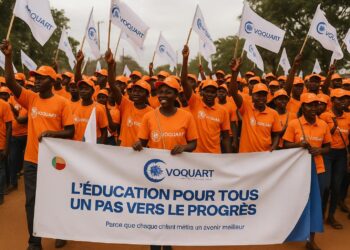Brazzaville forum spotlights digital finance
On 20 October, the Higher School of Management and Business Administration (ESGAE) opened a three-day scientific forum in Brazzaville to examine how digitalisation is reshaping money, microfinance and broader inclusion dynamics across Central Africa, with comparative lenses on Congo and Cameroon.
“Transfers, microfinance and digitalisation are now core drivers of economic development,” ESGAE director Roger Armand Makany told participants, stressing that applied research must convert these trends into locally relevant solutions rather than imported models.
Mobile money trends in Central Africa
World Bank Findex data show that mobile-money account ownership in the Economic and Monetary Community of Central Africa rose from 11 percent in 2017 to 26 percent in 2021, propelled by cheaper handsets and aggressive agent-network roll-outs.
Cameroon, the region’s largest market, processed an estimated 1.4 billion mobile-money transactions in 2022, according to the national telecom regulator, with Orange Money and MTN MoMo capturing over 80 percent of volume.
In Congo-Brazzaville, BEAC figures indicate that the value of e-money flows more than tripled between 2020 and 2022, reaching 1.1 trillion FCFA, as fintechs such as Airtel Money and Moov Africa expanded rural coverage.
Regulatory fine-tuning under BEAC and COBAC
The Bank of Central African States (BEAC) updated its electronic-money instruction in March 2023, tightening capital thresholds for issuers while allowing cross-border interoperability within the six-member bloc, a move applauded by bankers for lowering settlement risk.
Meanwhile, sub-regional supervisor COBAC is revising prudential ratios for microfinance institutions to better reflect digital portfolios, an agenda welcomed by practitioners at the Brazzaville forum as it promises clarity on agent outsourcing and data-privacy obligations.
Microfinance players pivot to platforms
Leading Congolese MFIs such as Crédit Mutuel and Caisse Nationale d’Épargne now offer smartphone loan applications that pre-score clients using airtime histories, cutting origination costs by up to 40 percent, according to internal pilot results shared during the conference.
Agent banking, once restricted to urban kiosks, is expanding along timber and mining corridors, providing seasonal workers with payroll wallets and unlocking new deposit bases for institutions previously dependent on donor credit lines.
French economist Vincent Iehle argued that pairing micro-savings with e-vouchers for fertilizers or school fees can “translate digital convenience into concrete poverty-reduction outcomes,” provided consumer-protection rules are enforced.
Academic networks nurture fintech talent
The forum benefits from the support of universities in Douala, Kinshasa, Brazzaville and Rouen Normandie, creating what Makany called a “South-North research corridor” to benchmark policy experiments and share anonymised usage data.
Joint master classes on coding, behavioural economics and open-banking standards are planned for 2024, a timely boost as the region’s fintech sector is forecast by McKinsey to require 15 000 additional developers over the next five years.
Signals for investors and policymakers
Venture-capital inflows into Central African fintechs reached 92 million USD in 2022, Dealroom estimates reveal, still modest compared with Nigeria but up six-fold in two years, indicating a market approaching critical mass.
Infrastructure gaps remain: only 42 percent of Congolese towers are 4G-enabled and power outages average eight hours per week. Delegates therefore highlighted the need for blended finance mechanisms to de-risk tower upgrades and data-centre projects.
Public-private partnerships, including those backed by the African Development Bank’s Smart Africa Trust Fund, could accelerate universal access, while easing fiscal pressures on national budgets and reinforcing the government’s 2022–2026 National Development Plan.
A measured path toward inclusive growth
Participants converged on the view that digital wallets alone will not guarantee inclusion; complementary investment in ID systems, consumer education and robust oversight is essential to maintain confidence and protect vulnerable users.
Closing the session, Iehle observed that Central Africa’s comparative late start offers an advantage: “We can leapfrog legacy hurdles, but only if innovation remains responsible.” ESGAE plans to publish policy briefs from the forum by year-end, offering a roadmap for sustainable expansion.












































